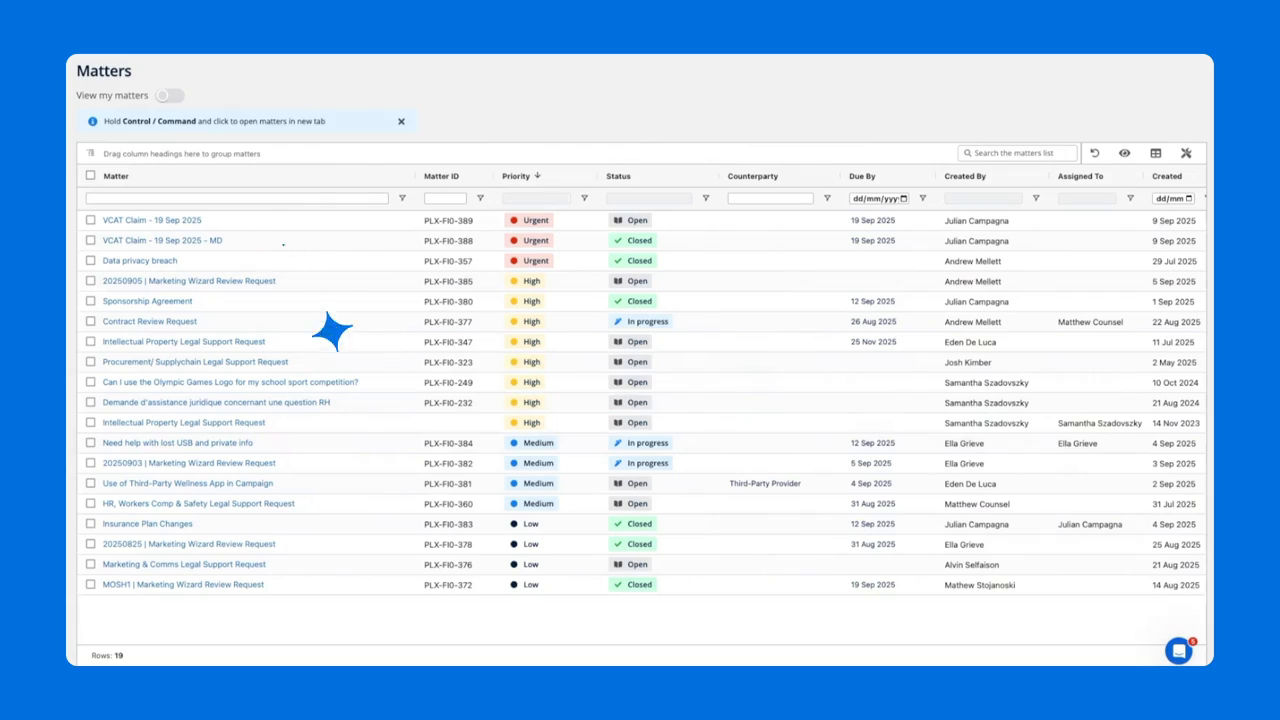Matter management that eliminates email chaos
With Plexus, every request is logged, triaged, and tracked in one place. No chasing, no lost matters, just visibility and Legal in control.
These legal teams now close out matters faster:
- 2x more matters handled without extra headcount
- 12mins to generate NDA vs days
- 30 mins admin p/week vs dedicated internal ‘help desk’
/Colour/Kelloggs.png?width=225&height=70&name=Kelloggs.png)
/Colour/Bayer.png?width=225&height=70&name=Bayer.png)
/Colour/Caidya.png?width=225&height=70&name=Caidya.png)
/Colour/7-eleven.png?width=225&height=70&name=7-eleven.png)
/Colour/Woolies.png?width=225&height=70&name=Woolies.png)
/Colour/ACC.png?width=225&height=70&name=ACC.png)
How We Help
-
- INTAKE & TRIAGE
Smarter intake, sharper priorities
Capture the right details upfront, route requests instantly, and spotlight matters that truly need attention.
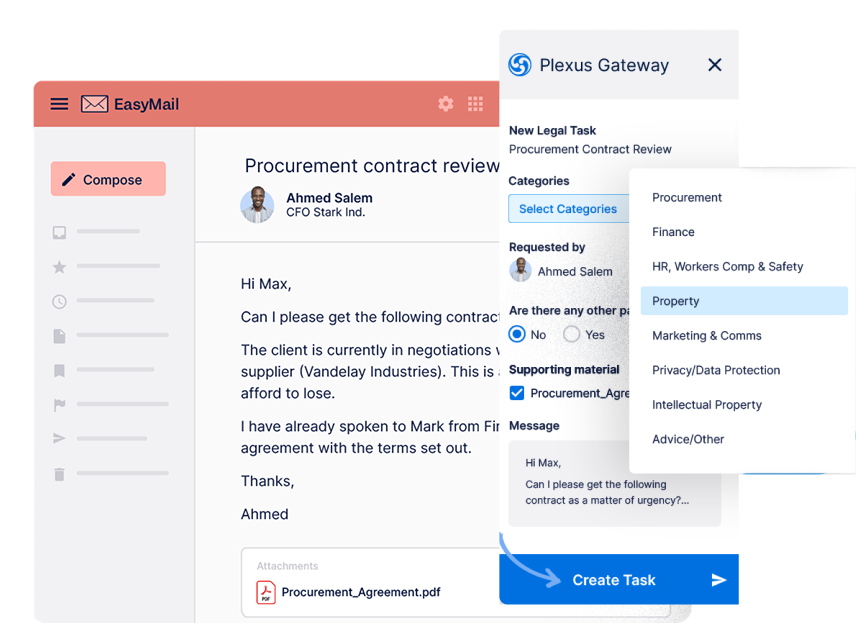
-
- CENTRALISED WORKSPACE
Complete visibility
See every request, deadline, and risk in one dashboard.
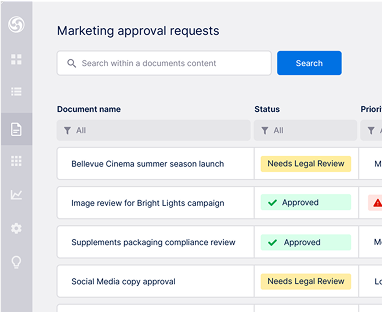
-
- FASTER CONTRACTS
Slash contract turnaround times
Generate, review, approve, and execute contracts in minutes - not weeks - using AI-powered workflows, automated approvals, and e-signatures.
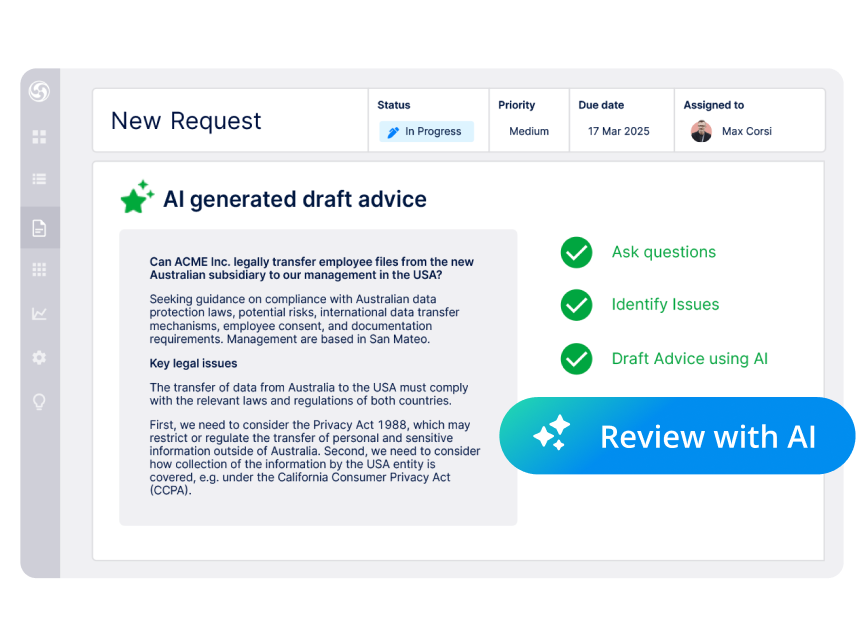
Capabilities
Customers
Get Started
Standardised intake & triage
Capture requests through guided forms and route instantly, no inbox chaos.
Smart prioritisation
Flag urgent or high-risk matters so Legal focuses where it counts.
Centralised workspace
Assign, collaborate, and track every matter in one transparent system.
Analytics & dashboards
Monitor volumes, cycle times, and team workload in real time.
Word & Outlook integration
Capture matters from email, access full legal context in Word, and keep documents and discussions connected without leaving Microsoft tools.
Connected workflows
Connect matters to related contracts, policies and workflows.
/Colour/Engie.png?width=225&height=70&name=Engie.png)
“We now have a platform where documents get approved, executed and stored in a single, user-friendly platform. It's been excellent.”
50%
year over year increase in execution volume
4.5 hours
end-to-end document execution

Lawrence Kim
General Counsel
“With Plexus, it’s very clear where things are. If there’s ever a question around status, you have a clear and transparent audit trail. It’s very difficult to blame legal."
.png?width=428&height=601&name=Untitled%20design%20(30).png)
Peter Seares
Chief Legal & Sustainability Officer
Matters don't need managing, they need Plexus Counsel
Lawyers deliver twice the work without twice the lawyers.
Business users get AI-powered guidance based on your team’s precedents and policies.
Everyone moves faster.
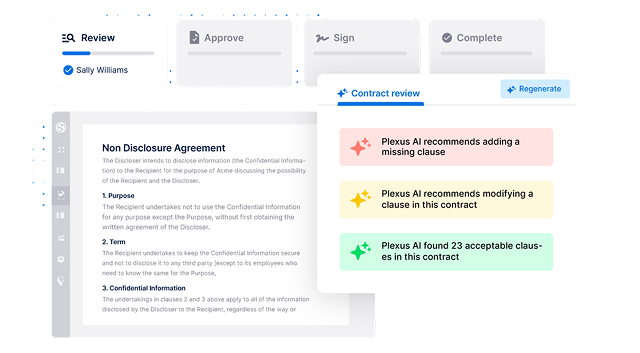
Lawyers deliver twice the work without twice the lawyers.
Business users get AI-powered guidance based on your team’s precedents and policies.
Everyone moves faster.
Bring matters, contracts, and compliance together to unlock capacity overnight
Contract Management
Generate, negotiate and e-sign contracts with policy controls built in.
Plexus AI
Your digital lawyer that knows your business like your best lawyer, available 24/7.
Insights & Reporting
Unlock real-time insights and reporting on performance, risk, and bottlenecks.
Get up and running in days, not months
We configure your environment fast, drive adoption across teams, and support you with a dedicated CSM and 24/7 support.
Get started
Minimal IT set up required - most teams get started with browser access and SSO configuration.
Training & configuration
Guided setup helps your team learn and tailor Plexus - fast onboarding without costly, months-long configuration.
Business rollout & training
Ensure adoption with executive buy-in, team training, and onboarding integration - driving value from day one.
Lorem ipsum dolor sit amet, consectetur adipiscing elit, sed do eiusmod tempor.
- 2-3 weeks average time to full deployment
- 90% customers see ROI within first month
Take control of your matters
Our team is ready to show you Plexus' unified matters, contracts, and compliance platform. Schedule a personalised demo today.
/Black/Woolies.png?width=225&height=69&name=Woolies.png)
/Black/Sigma%20Healthcare.png?width=225&height=69&name=Sigma%20Healthcare.png)
/Black/Powerco.png?width=225&height=69&name=Powerco.png)
/Black/Loreal.png?width=225&height=69&name=Loreal.png)
/Black/ACC.png?width=225&height=69&name=ACC.png)
“Now Plexus does the heavy lifting so we can focus on users who might need extra help, or value-adding activities for the business using data-based insights.”

GM Corporate Services & Company Secretary, Powerco








